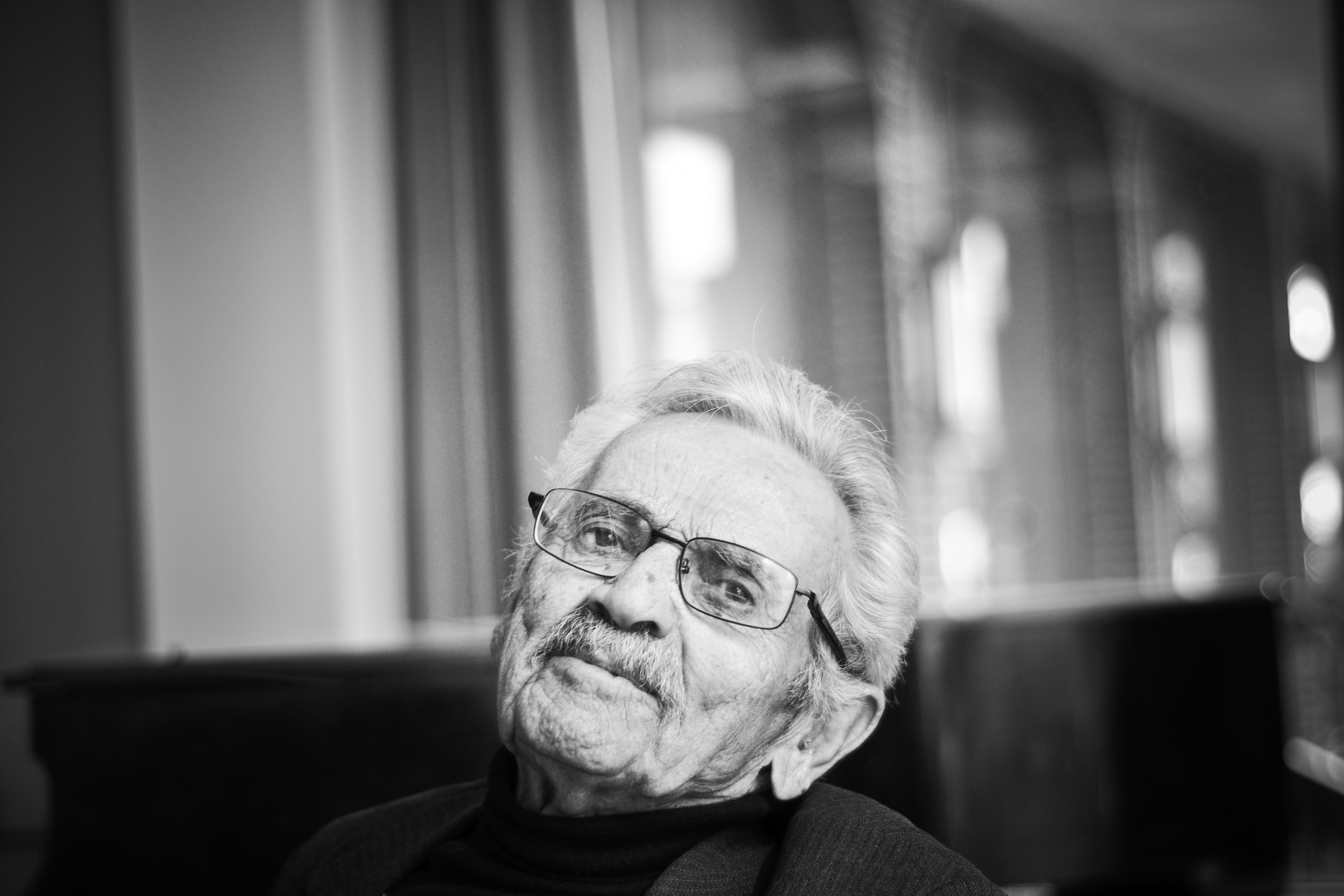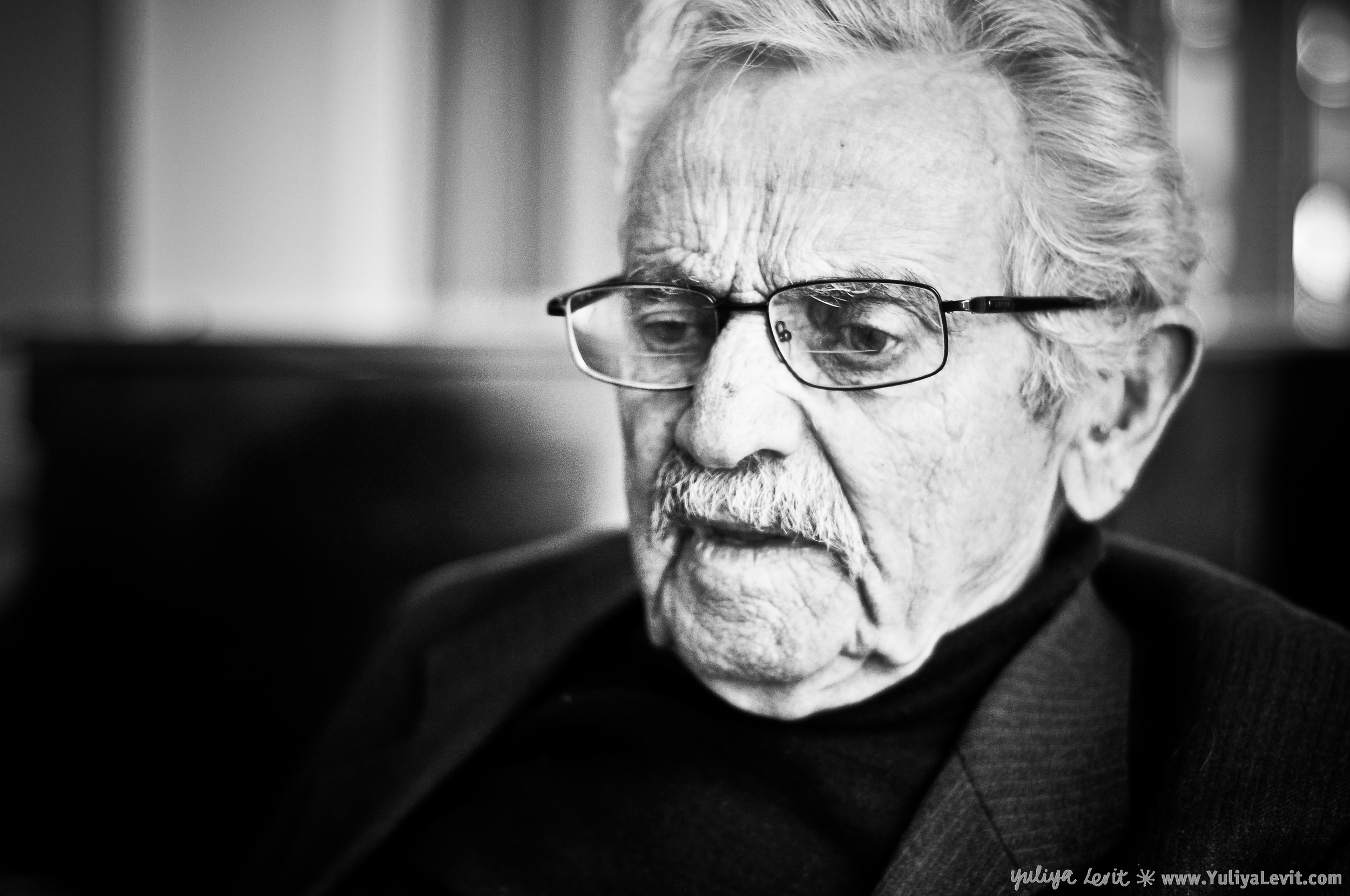I was 6 when my mother died. My older brother was about 10, and my younger brother had just been born. My father was alive then but not for long - in 1921 he contracted typhoid and died. And there we were, the three of us, left without parents. So we were sent to the orphanage. It was a tough period, we had to steal to get by, and we were homeless. We considered it a good day if we managed to get some food. After some time, my older brother was adopted. I never saw him again. I searched for him all my life, everywhere and anywhere, but I couldn't find him.
When I was 14, I ran away from the orphanage with a friend, leaving my younger brother there. We went to the railway station, and climbed into a freight car of the train. We traveled all night in that car and in the morning we found ourselves in Dnepropetrovsk. It was the time of Golodomor [man-made famine] in Ukraine. When we got out onto the terminal we saw more dead folk than alive... people who died of hunger... Long story short, I saw an advertisement that said that PTU was open for enlistment. So we decided to try it. When we arrived we were sent to see the clerk. She asked to see our passports. But of course, we had no passports. So she said, in that case, she couldn't help us. To be honest, we felt lost. I even started crying.
We went out into the courtyard and were immediately surrounded by other applicants who were eager to hear our story. We explained that we were rejected because we didn't have passports. The boys suggested we speak to the chief of Joint (Jewish organization), a man by the name of Hazin, maybe he could help. I nearly jumped when I heard the name. “My last name is Hazin too!” - I exclaimed - “We have the same last name!” Suddenly, the courtyard gates opened up and a car rolled in, and in that car was this man, Hazin. He approached us and began asking questions. I probably looked like I’d been crying. So he asked: “Why are you crying?”. The boys told him my story. He took me to his house.
His wife, Berta Markovna, prepared a bath for me right away. I had no idea that the water was supposed to come from the faucet in the wall, I was a village boy! So I stood there quite lost. At that moment, a boy walked in, he was my peer, and he said “Why are you not bathing?” So I said “I don’t know how to!” So they turned on the water for me, bathed me, brought me a clean sheet... I later found out about their predicament - they had no children of their own, and they took this boy into their home, same as they took me, they adopted him. But I somehow didn't fall in with them.
He (Hazin) signed me up for a course. I lived with Hazin family at first. But when I found out there was a dormitory available, I moved there. I completed the course. This course was especially designed to prepare workers for Jewish kolkhoz [collective farm]. There were many Jewish kolkhozes in the area and only Jewish people were sent there. But this man [Hazin] took pity on me, he didn't send me to a Jewish kolkhoz, he sent me to the Lenin factory, the factory that specialized in pipe making. It was there that I really became somebody. I have to say that Hazin played an important role in my life. Berta Markovna made me promise that I would visit every weekend. I did, and every time I left their place, I found one ruble, or three rubles, or five in my pockets. She slipped the money in. And this is how I lived until 1938. And in 1938 I went to visit Hazin's one weekend and saw “chyornyi voron” [the so-called “black crow” car, notorious for collecting people who were being arrested from their homes in the middle of the night] waiting to take Hazin away. And two weeks later it came again for Berta Markovna.
I enrolled in a technical school to study car engineering. I attended it at night and worked during the day. At the end of 1939 I was recruited into the Army for mandatory service. I was supposed to be dismissed from the Army in 1941 but the war commenced. And I returned only in 1943 because of a gunshot wound - by then it was the third time I had been wounded. The bullet penetrated my chest and came out through the shoulder blade.
When I was in the hospital I met a young woman. She was a student at a Third Medical Institute. The entire Institute was evacuated to the city of Ufa, and that’s where my hospital was too. The students occasionally visited the hospital, so this young woman and I got acquainted. When I was demobilized, I had nowhere to go. But she and I, we wrote to each all this time. By that time she had returned to Moscow, and she invited me to come. Her parents did not want to accept me. But despite all that we got married. We lived in the barracks, then we lived in the basement, then we shared an apartment with someone until we finally got an apartment.
We had children - two daughters and one son. We lived together for 59 years. We now have grandchildren and great-grandchildren. I resumed my search for my brothers. I discovered that my younger brother died at the front lines, his grave is near Smolensk. I searched for my older brother everywhere. I couldn’t possibly imagine that his adoptive parents took him to Argentina. Yes, Argentina. All of a sudden, in 1994, in Moscow, I received a notification - a summons to go to the International Post Office. I went there and received an envelope. Inside there was a bunch of photographs of people I did not know, and a note in broken Russian saying that the children of my older brother were trying to contact me. The brother himself had died but he had been looking for us all his life.

